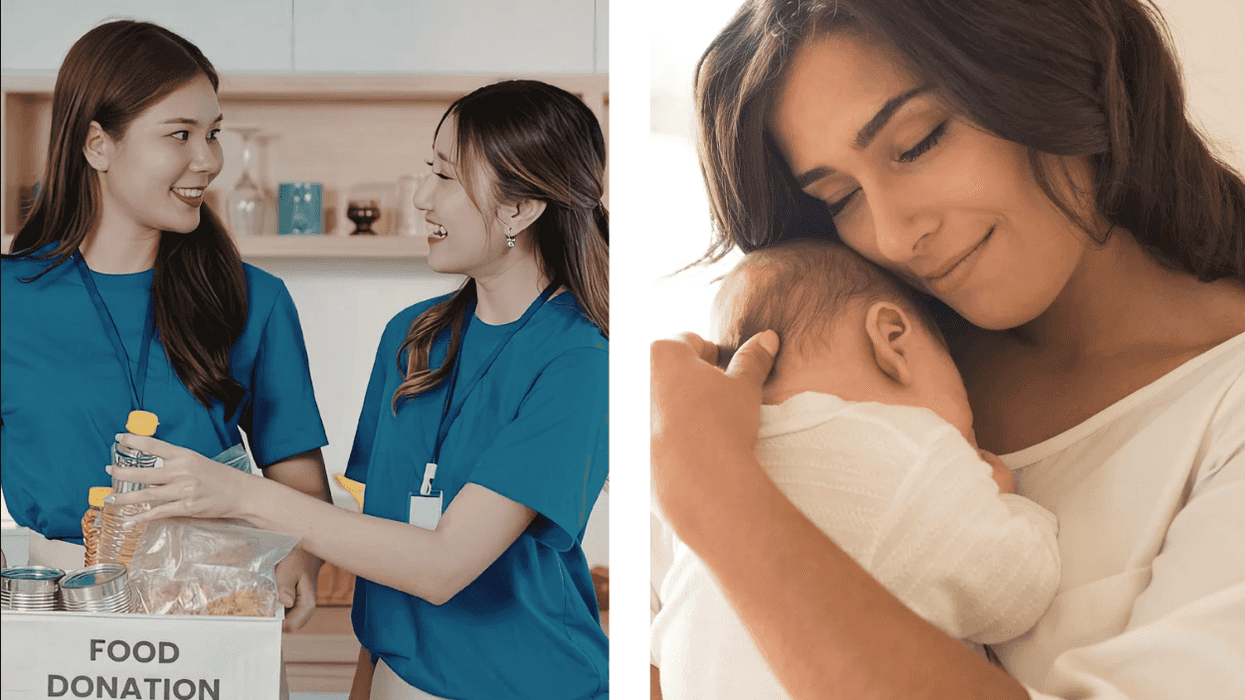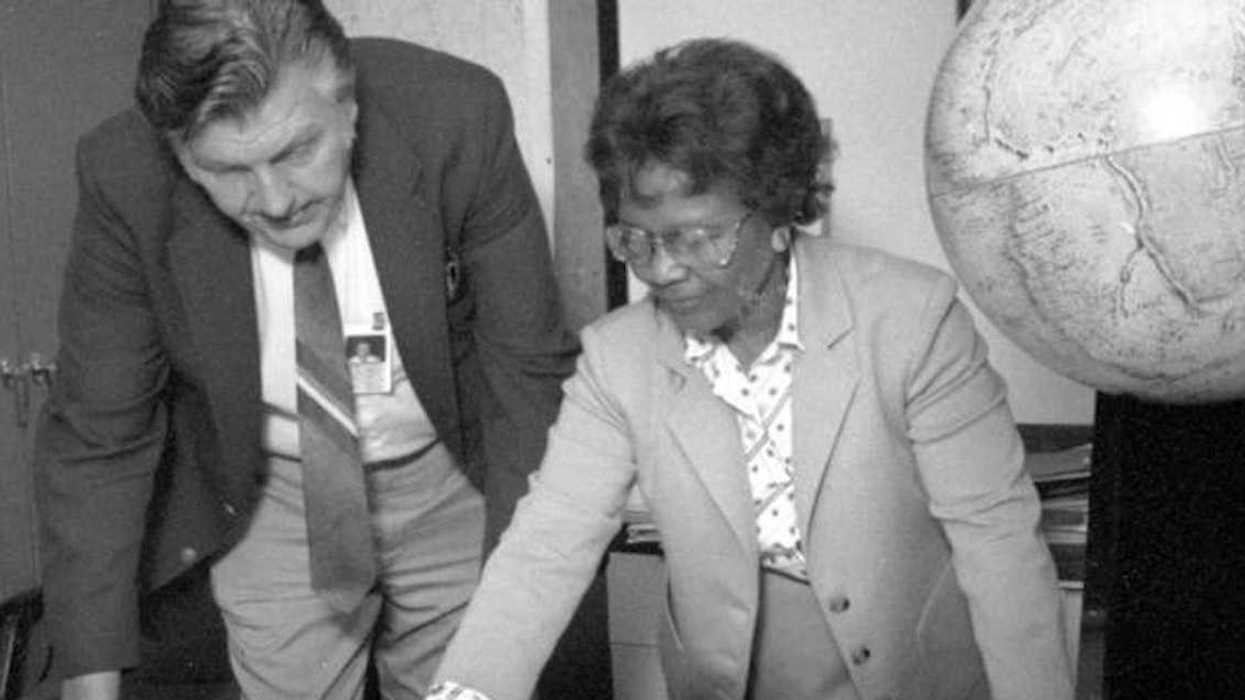This post is brought to you by GOOD, with support from UPS. We’ve teamed up to bring you the Small Business Collaborative, a series sharing stories about innovative small businesses that are changing business as usual for their communities and beyond. Learn how UPS is helping small businesses work better and more sustainably here.
“I’ve never been as wasteful as when my kids were young,” a friend whispered in a confessional tone when I was expecting my first baby. She remembered the thousands of diapers a baby will go through before potty training. What she didn’t warn me about was the onslaught of other must-have clutter that would sweep into my home as gifts: bottles, toys, multiple strollers, swings, furniture, sippy cups. What began as well-meaning gestures became a flood of plastic paraphernalia that would be used and then stowed in the attic or freecycled after my son met each new developmental milestone. As troubling reports about BPA and phthalates increased, I began to see the clutter not just as an overwhelming sea of excess, but also as a potential threat.
Emily Blakeney had the wherewithal to reflect upon these choices well in advance. “When I got pregnant with my first child in 2005,” she remembers, “it was probably the first time that I stopped in my tracks and thought about what I was putting in, on and around me, my baby and my husband.” Even the internet, at that time, had limited information about the products she used. So soon after her baby was born, naptime and other quiet moments were dedicated to researching diapers, bottles, food. “I was doing a ton of research, because I wasn’t liking what I was seeing that I had easy access to—plastic bottles, for example.” She began what she calls “very, very amateur product testing,” ordering goods and seeing what she liked. It was Blakeney’s first step toward becoming a curator of healthy, environmentally sound products.
By the time her daughter was two-and-a-half, Blakeney had opened Eden’s Green Closet, a shop named after her daughter that aimed to “change the face of consumerism for new and young parents” by offering a mix of gently used and sustainable goods. It was when Blakeney was pregnant with her second child that social entrepreneur Jody Sherman stepped into her shop with an idea—they could launch an online store together, much like her shop, designed for moms in search of healthy products.
That notion evolved over time into a growing online business now based in Las Vegas, with the memorable URL ecomom.com. Sherman is CEO and Blakeney serves as “Chief Mom Officer”—a role that has formalized the process of curation that she began years ago.
Every item at Ecomom passes a stringent set of protocols and is tested at home by Blakeney and her family. But before any product makes its way into the hands of Blakeney or her children, it must first pass an audit that includes questions ranging from an ingredient check (i.e. known carcinogens, endocrine disruptors, neurotoxins and the like eliminate products from the get-go).
Points are given for vegan products, packaging that is chlorine-free or FSC certified, and for companies that offer parental leave and flexible work hours for their employees. Blakeney is clear that the process may not be scientific, but for products that pass muster in the audit, she carefully cross-references each ingredient in chemical databases like those of the Environmental Working Group, also checking to see how chemicals react when combined. If deemed safe after that test, Blakeney tries a sample in her own home. If, for example, a laundry detergent doesn’t clean her kids’ clothes, it won’t make it onto Ecomom. Those that do well in the home test receive the “Ecomom Trusted” seal. Finally, with what might be described as ex post facto-style curation, Ecomom checks its entire inventory weekly for recalls, and though their selective process has not yet allowed a later-recalled item into their line, they save all users’ purchase histories in order to be able to contact them if a recall does occur.
Helping families stay healthy has become a model for a different way of doing business. The glut of plastic, disposable or short-term baby goods that fill nurseries across the country are part of a broader consumption cycle. “I think that it really is going to take businesses a long time to catch up with changing their model from disposable and convenient to long-lasting, non-toxic, healthy, valued and valuable products,” says Blakeney.
At the same time that Ecomom has created a logistical model to help families find quality products so they fill their homes with less stuff, there are far too many families living with not nearly enough. From its beginnings, Ecomom annually made charitable donations, but just writing a check “didn’t do anything for our customers.” The company’s founders learned that millions of American kids under the age of five grow up without adequate nutrition—“which is absolutely alarming,” says Blakeney.
The company decided to connect the two. Launching the program “It’s All Good,” Ecomom began donating one day’s supply of baby food to six participating food pantries for any purchase, in any amount, made on the site. According to Blakeney, the program has already donated over 80,000 days' worth of food and will reach 100,000 by the end of this year.
It’s an effort to increase accessibility to the same GMO-free, organic baby food Ecomom sells on its site. Those who staff food pantries know just how rare it is to receive donations of baby food at all. St. Joseph Center’s Food Pantry in Venice, California serves hundreds of households that have very small children at home, and according to St. Joseph’s executive director Va Lecia Adams, Ecomom is the only regular source of baby food the organization has. “Every parent wants the very best thing for their children,” Adams explains, “and our families really appreciate that the baby food Ecomom donates is healthy and organic.”
For all the stuff parents are nudged into buying for our kids, most of us just want to provide happiness and health. When measured in meals given to babies who need them, Ecomom’s ethos of healthy mindfulness helps put the consumption of baby gear in context. Their approach helps its customers take a step back, gather what they trust from companies that share their values—give a meal to a family that needs it—and leave the rest.
Illustration by Zoe-Zoe Sheen
















 Otis knew before they did.
Otis knew before they did.